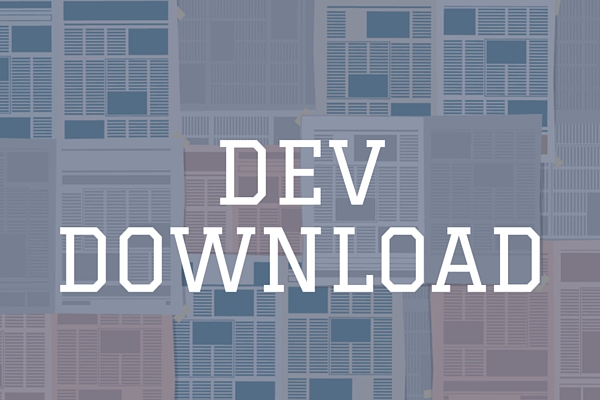The Dev Download keeps you up-to-date with the latest tech policy news. The Download is published each Wednesday, ensuring you and your team are informed on what policymakers are talking about.
CYBERSECURITY & GOVERNMENT SURVEILLANCE
Senate Narrowly Rejects New FBI Surveillance (The Hill, 6/22)
Falling two votes short, the Senate on Wednesday rejected an attempt to expand the FBI’s surveillance powers. The proposal would have empowered the FBI to compel companies to release consumer data without a warrant and without telling the consumer, while also permanently extending certain provisions of the Patriot Act.
Tech Groups Oppose Expanding FBI Hacking Authority (FCW, 6/21)
A group of technology firms and organizations sent a letter Tuesday to Congressional leaders urging the reversal of a recent decision by the Supreme Court which allows judges to issue search warrants for computers outside their district. The Alliance released a policy briefing on the decision, which can be found here.
Russian Lawmakers Call For More Surveillance and Weaker Encryption (Fortune, 6/21)
New legislation in Russia looks to embolden their already stringent surveillance controls. If passed, the law would require internet service providers to store consumer communications for six months and metadata for three years so the state could requisition it at a later date.
Justice Dept. On Board With Expanded Ability to Search Computers (The Hill, 6/20)
On Monday, Assistant Attorney General Leslie R. Caldwell published a blog supporting changes in the Justice Department’s warrant requirements for searching computers. Civil liberties groups are already organizing in opposition to the changes, which have the potential to weaken consumer security and privacy, and open the door to misuse.
PATENT LITIGATION REFORM
Tech Industry Wins Big in Supreme Court Patent Ruling (Fortune, 6/20)
In a move upholding the U.S. Patent and Trademark Office’s ability to determine patent legitimacy, the Supreme Court unanimously ruled against a lawsuit challenging the inter partes review system.
Rhode Island General Assembly Advances ‘Patent Troll’ Legislation (Legal NewsLine, 6/17)
Last week, the Rhode Island General Assembly passed legislation to protect small businesses from ‘patent trolls.’ If signed by Rhode Island’s governor, the law would prevent people or companies from making bad faith assertions of patent infringement.
INTERNET OF THINGS
Samsung to Invest $1.2B on IoT in US (Mobile World Live, 6/22)
Samsung, in coordination with other industry leaders like Alliance member Intel, are set to invest over a billion dollars into IoT over the next four years. The investment will focus on IoT’s life-saving potential, with Samsung’s vice chairman and CEO lauding the plan’s “human-centered approach.”
Columbus Wins U.S. DOT’s Smart City Challenge (GovTech, 6/21)
Columbus, Ohio has beaten out six other finalist cities to win the U.S. Department of Transportation’s Smart City Challenge for their work in deploying new technologies to better serve the community, in the process winning $50 million. Along with this, a local business coalition is providing $90 million to the project, launching Columbus to the forefront of the Smart City revolution.
AUTONOMOUS VEHICLES
Tesla Rival Faraday Approved to Test Self-Driving Cars on California Roads (Reuters, 6/21)
After winning state approval, Los Angeles-based startup Faraday Future is set to begin testing for the prototype of their autonomous electric vehicles on California roads in June 2017. Faraday, which hopes to compete with Tesla in premium electric vehicles, is the 14th company to gain road approval for self-driving vehicles in California.
First Self-Driving, 3D Printed Smart Bus Hits the Streets of Washington, DC (EcoWatch, 6/19)
Olli, a self-driving bus by Local Motors and IBM Watson, hit the streets of Washington D.C. on Sunday. Olli has the capability to analyze and make decisions based off of transportation data, and riders in D.C. can hail the bus through an application much like Uber or Lyft.
Driverless Cars Are Hitting the Racetracks (Motherboard, 6/19)
While the future of autonomous vehicles on the road is still uncertain, self-driving race cars have started driving on tracks to test development. Ten engineering teams have been given cars to work on honing artificial intelligence before racing each other in September.
MISCELLANEOUS
FCC Members Headed Back to Capitol Hill (The Hill, 6/22)
At a July hearing held by the House Energy and Commerce Committee, Federal Communications Commission members, including Chairman Tom Wheeler, will testify on an FCC proposal to expand the agency’s regulatory responsibilities in the privacy arena.
Proposals to Curb Online Speech Viewed as Threat to Open Internet (Reuters, 6/21)
A London-based think tank is set to present a report on internet governance, warning against a recent groundswell of laws restricting online speech around the world. At least a dozen countries have recently introduced or enacted laws limiting expression over the internet, a dangerous prospect for the global internet.
Academia, Industry Scramble to Fill Cybersecurity Talent Pipeline (Xconomy, 6/20)
With high demand for cybersecurity workers expected to further swell in the next few years as companies and agencies fight against increasingly sophisticated cyber attacks, universities are beginning to expand or launch programs meant to certify students in cybersecurity.
mRelief is Helping Ensure Low-Income Kids Get Access to Meals this Summer (TechCrunch, 6/20)
For children who rely on free school lunches during the year, mRelief has launched a new application and text messaging line to help families easily find places to receive free or discounted food. Available in 42 states, mRelief aims to make sure that low-income families have access to meals and to assistance where need be.
Why Most of London’s Tech Sector Believes Brexit Will Prove a Disaster (TechCrunch, 6/16)
Many in London’s tech industry fear that leaving the UK could irreparably harm the industry’s capabilities and growth. Professionals warn of investment losses, less influx of skilled workers, halted innovation due to uncertainty, and more negative consequences.



